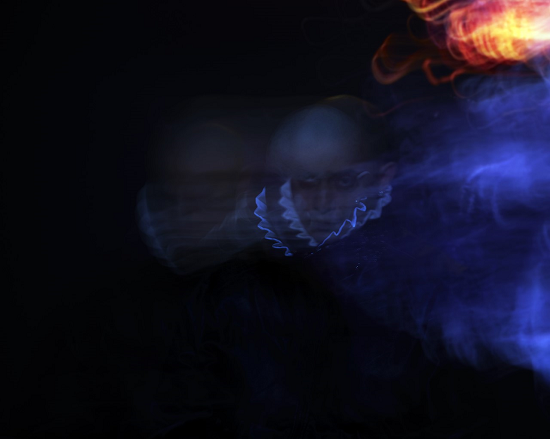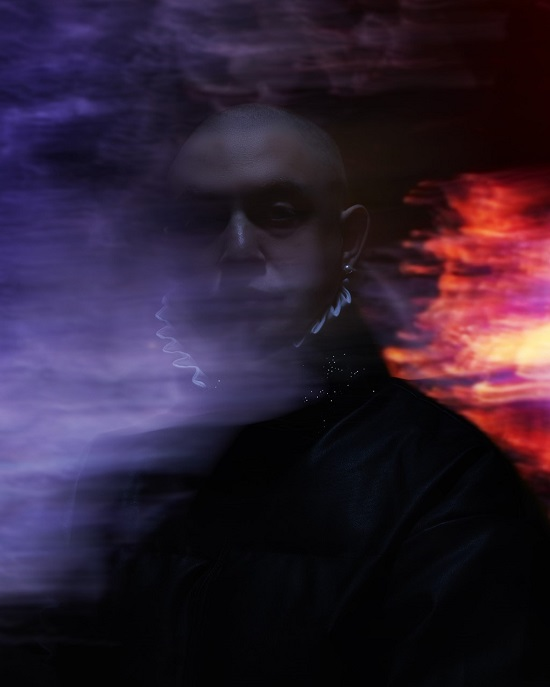Photos by Dre Romero
In 2012, Eli Osheyack had just moved to Shanghai, staying with a friend. Initially disappointed by the range of music in the city, which he felt was lacking, he was set to leave as quickly as he arrived. That changed when the Shanghai underground electronic scene suddenly started bursting with talent, primarily housed in a club called The Shelter.
The Shelter was the offspring of Manchester-born Gaz Williams, who managed the venue and founded an accompanying label, SVBKVLT. SVBKVLT quickly established itself with an impressive roster of artists such as Hyph11E, Gabber Modus Operandi, 33EMYBW, and Gooooose. They each took inspiration from sounds across the globe, funnelling them into the exciting new face of Shanghainese sound.
Although The Shelter has been closed since 2016, Williams founded its spiritual successor, ALL Club, described by here RADII as a “refuge for Shanghai’s alternative crowd.” It’s where Osheyack oversaw the dancefloor for years, securing a place on SVBKVLT’s roster that same year with Fake/Fiction/Fraud. His uniquely freakish take on club music incorporated hunks of gabber, ballroom and hardcore, which extended to include IDM and drone music on his debut, 2018’s Sadomodernism. For a while, ALL Club and its musicians enjoyed a significant amount of clubgoers and press coverage. Then the pandemic struck, and the travel restrictions proved impossible for Osheyack to flourish.
Watching the rapid cessation of club culture in Shanghai meant that Osheyack had to capture his memories, fast. The result is Intimate Publics, a sonic ode to Shanghai and an exploration of the wider relationship between artist and community. Osheyack is now based in the US and joined tQ for a Zoom call about preparing to tour in the EU this summer, and his upcoming album release.
What is Intimate Publics all about?
Osheyack: The album itself is meant to memorialise this specific period that had an arc, and almost a certain definite ending in Shanghai of club music. Drawing on previous influences, and also exploring a possible audience or future audience that would be outside of Shanghai.
Intimate Publics was highly influenced by Michael Warner’s work on publics and counterpublics. How did you come across his work?
O: I was reading a lot of Lauren Berlant, and she had done multiple works with Michael Warner. I really like this idea of the defined publics outside of the public. [Warner] talked about it with a piece of writing binding an audience to the work. And I thought it seemed apt to talk about that with the kind of sound that came out of this period and the audience that’s bound to it in the same way. So it’s borrowing that concept. And also, it feels kind of romantic to me to make something for a specific group of people, and the togetherness that they find themselves within the work.
What’s Shanghai and its musical landscape like?
O: I came to Shanghai maybe ten years ago, and in that time, there were only a small amount of clubs. You had a lot of people who were coming in from France or England, mostly Europe, and regularly playing the clubs. And then in about 2013 or 2014, there was this big sea change where younger Chinese clubgoers flipped the script and took over that world. That happened at the same time as two labels that were born out of this club called Shelter – it started to rise with Genome 6.66 and SVBKVLT.
At that time, I was invited to play at my friend’s night. And as a group, we coalesced the people from Genome, the people from SVBKVLT, some fashion people. Artists like Tianzhuo Chen from Asian Dope Boys and this whole thing came together quite quickly and just started building. People started coming out and you didn’t know who they were, but they looked amazing. And they were playing stuff in a way that had never been played before in that setting. So, yeah, it was quite an exciting time to be there. And it just kept building and building until it started getting international press, maybe around 2017.
Then, I guess, 2018, 2019, government-wise things got a little bit more hairy. More crackdowns from police on people and on spaces. And then just as people were starting to branch out of playing in the city, that’s when COVID hit. And since COVID hit, the borders have closed, which has kind of decimated this specific club scene.
Is that because it’s so dependent on expats and outside influences?
O: Not so much that it’s dependent on expats, because by 2016, the most heralded DJs and producers were from Shanghai, or had moved to Shanghai from Beijing or other cities. But the way that Shanghai expressed itself as club music was because the idea of club culture is so young in this city, and in China in general. People just started grabbing bits and pieces of, say, what was happening with NAAFI or NON, or South African gqom, or grime. But just taking little pieces and reassembling them so that it made sense for this specific city and these specific clubs. So once that went away, it changed the audience’s perception, because I guess there was always something to measure.
How do you feel touring in a space where the audience has less understanding of the music’s specific context?
O: I don’t know how I’ll feel, because I don’t really have that same kind of connection. There’s a lot of joy that I got from writing something and having Hyph11E, or Kilo [Vee] play it. Hearing one of my peers in Shanghai think that something I made was good and hearing them play it is really exciting and the most meaningful. And so now, I don’t know how I’ll really feel playing these songs, approaching a festival audience or something, because it will mean something completely different.

Tell me more about what ALL Club is like
O: The Shelter was the real catalyst for the entire city, and then split as more clubs came. The Shelter was actually built in a 1940s bomb shelter, so it’s this amazing, long, mouldy tunnel into a dark basement. Everybody’s smoking cigarettes, and you don’t know what you’re going to hear when you go in. Kode9 could be in there, or very famously Burial… They had lock-in nights where couldn’t leave – total fire hazard! But yeah, Burial did one of those, I think. So there’s all these things that grew out of the initial alternative scene, and then that lease ran out and so there started to be other clubs that popped up that would be more genre-based.
When Shelter re-emerged as ALL, everybody had their own sandbox. They had their place to go to, and ALL was this place where anything goes. So for a few years, you could never be too experimental. There was nothing you could do to scare away the audience. That trust from the audience and Gaz [Williams] being such a good, like, shepherd, or something – it led to a lot of people being able to make a lot of work.
What is it about the club that inspires you to make music?
O: You have to deal with an audience, I think. That was very important for the way that I make music, because as a live musician, you’re not a DJ, so you don’t have to make people dance. But when you play in a club, you do have to have some reverence for the audience. It centres your work towards a relationship with the audience more than if it would be in a different space.
How do people usually approach artists from outside the Eurosphere? And what do you think should change about that?
O: A lot! I mean, from my experience being in Shanghai, there’s almost a pre-written script and people’s names are just filled in. For Shanghai, there’s usually talk about the government, there’s usually talk about censorship. There’s usually talk about Blade Runner, which is really infuriating to most people. There’s talk about it being a futuristic city and all these things without ever understanding why people are making what they’re making, or Shanghai itself. Like, it’s not futuristic for the people that live there. I don’t think people have a sense of trying to make escapist music – they’re actually making music that makes sense for the specific time that they’re living in and using the tools that are available to them.
Where do you think you’ll go from here?
O: There’s still a lot of work with the artists that I’ve collaborated with up to this point. And I’m hoping to work on bigger, less club situations… more work in the art world, that kind of thing.
Osheyack’s new album Intimate Publics is released on June 8 via SVBKVLT



